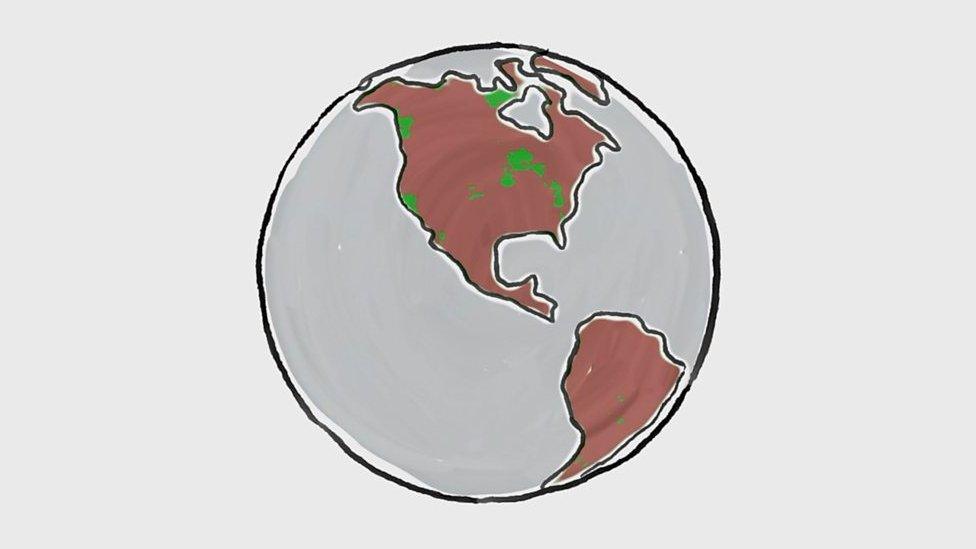Rhondda ex-mining village looks to forest for its future
- Published
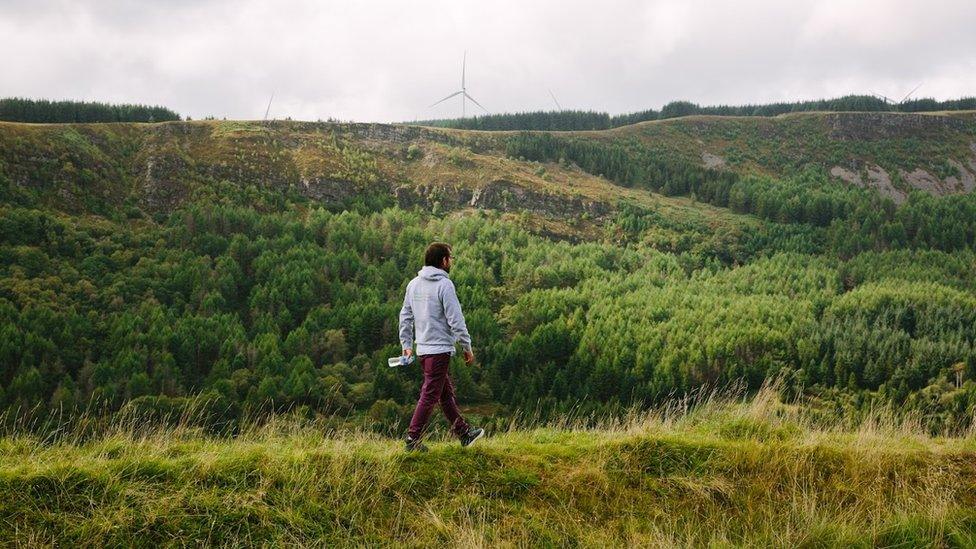
Ian Thomas from social enterprise Welcome to the Woods hopes taking charge of the forest will build local wealth
A former mining village has been awarded nearly £250,000 to develop Wales' first community ownership project.
The Skyline project wants to take charge of about 1.5 sq miles (4 sq km) of forestry around Treherbert, Rhondda Cynon Taff.
It wants to create jobs in forestry and provide timber for affordable homes.
It also hopes to open up space to grow vegetables and encourage use of the woods for education and leisure.
The money will be used to develop the ideas with the hope of getting up to £2.5m from the National Lottery climate action fund to put their plans into action.
Lee Williams, a Skyline volunteer, said: "After everything we've been through in this area, with the mines, the lack of work, jobs have been taken away from us, this would be something we can keep and protect.
"If people feel they own a small part of it, they'll do more to protect it and hopefully it will grow."
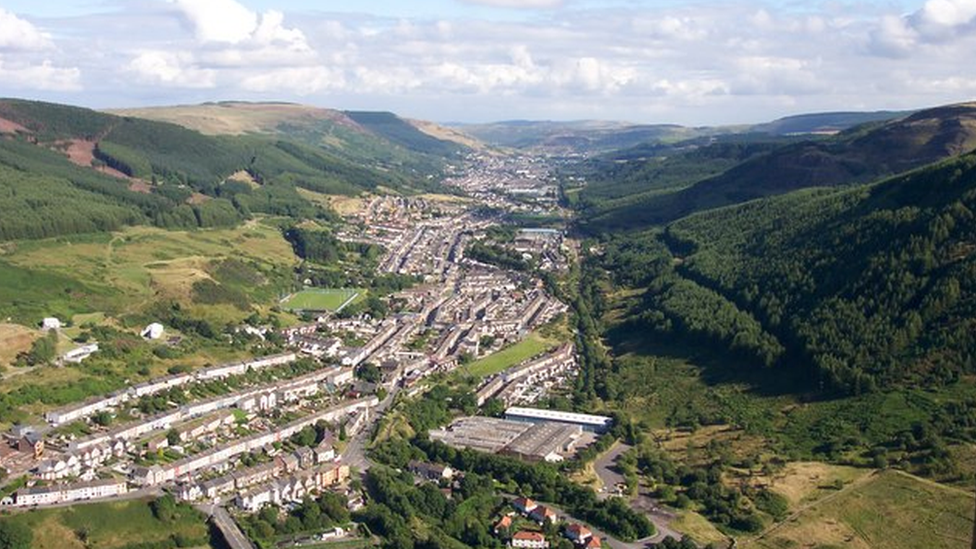
The former mining communities of the Rhondda valleys are surrounded by forestry
Much of the forestry surrounding the village, originally planted to provide pit props for the local mines, is owned by the Welsh government and managed by Natural Resources Wales.
Skyline has been developed by the Green Valleys, a local energy firm which put a turbine in a stream on the land, and Welcome to Our Woods, a social enterprise which runs well-being projects in the woods.
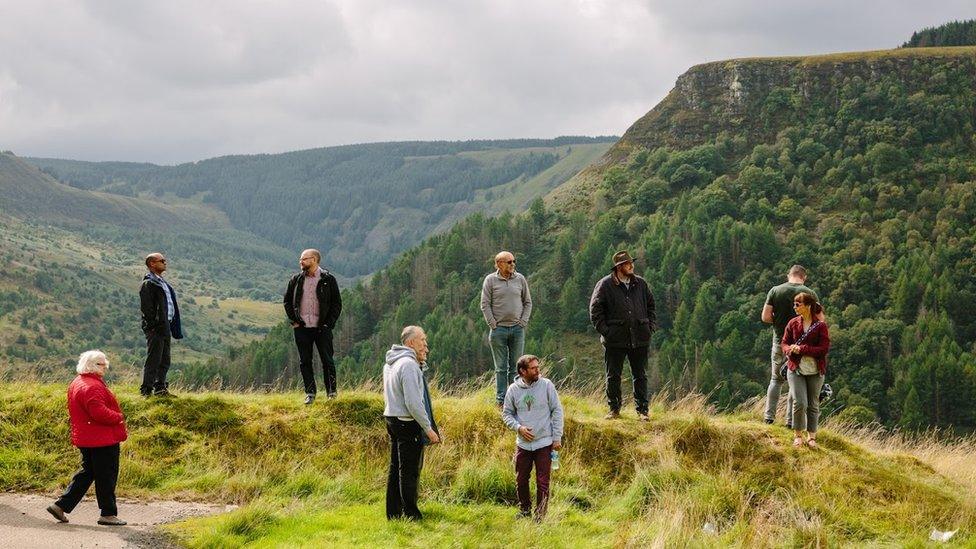
The project has asked people in the area what they want it to deliver
The project consultation with local people found familiar themes - they wanted jobs, affordable homes and opportunities to grow fresh food.
Ian Thomas, director of Welcome to our Woods, said people did not get much benefit from mass felling by companies from outside the area.
"What we're suggesting is quite profound to change the way the woodland is managed. Perhaps keeping continuous cover, but taking some trees out that we can use in the community for economic projects such as building homes.
"We're not talking recreating the mining industry with 10,000 jobs but we could be talking about 100 to 200, long-term, very secure, well-paid jobs here.
"Keeping the money in the communities is what we hope to achieve here.
"From the outside, we're seen as an ex-mining community with deprivation [but] we've got a rich landscape, we've got a very rich cultural history here, lots of people here are having very nice lives, using these natural resources. It's a great place to live."
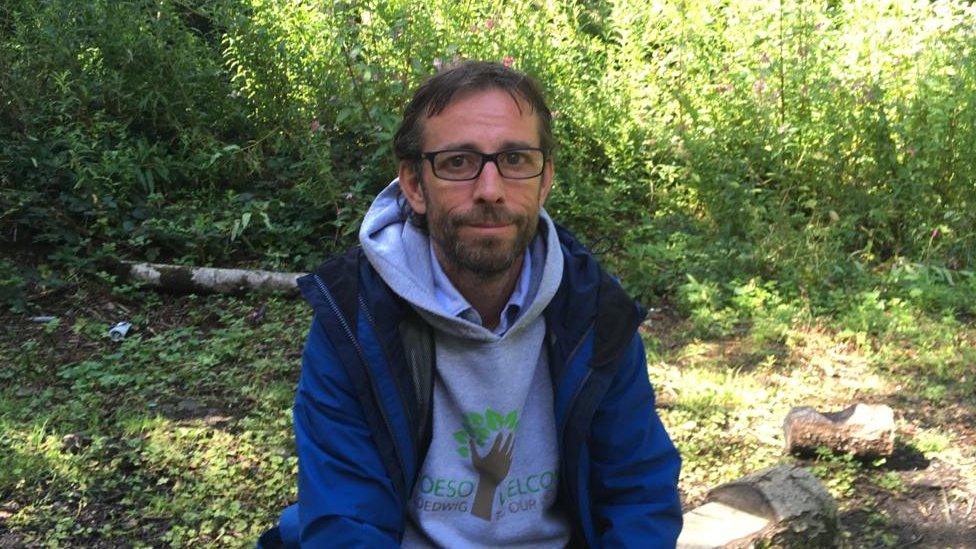
Ian Thomas's social enterprise runs activities such as bushcraft and walking for people who are isolated or suffering ill-health
Similar projects are common in Scotland - Community Land Scotland has more than 80 members who are either community landowners or aspire to be.
Policy director Calum MacLeod said these kinds of projects could be financially sustainable.
"There are examples in Scotland, such as in north-west Mull, where the community woodland company has taken over forestry and they've generated income from that and other woodland-based businesses. Ownership also brings wider environmental and social benefits, which are really important."
He also said it was important communities had good project management, governance and support.
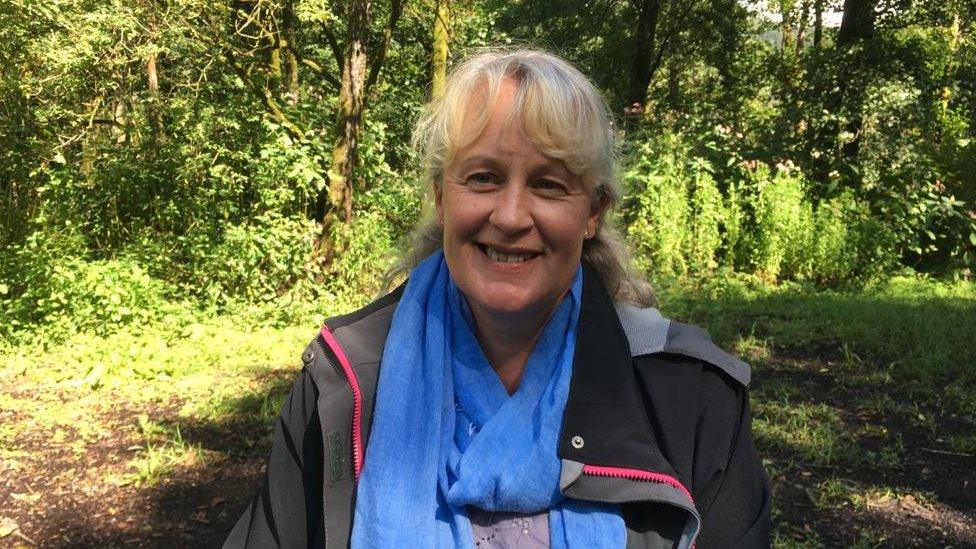
The project will create wealth for the area, says manager Melanie Newton
The Rhondda project would like to expand beyond Treherbert and project manager Melanie Newton thinks more Welsh communities could benefit from forests in their area.
"We are surrounded by woodland, but a lot of the time we do not see it."
"Jobs are really important for people… and I think one of the things that we have as a real passion for this project is that it creates wealth, and it creates a new economy for this area…that's actually grown out of the natural resources on our doorstep."
- Published20 September 2019

- Published16 June 2020
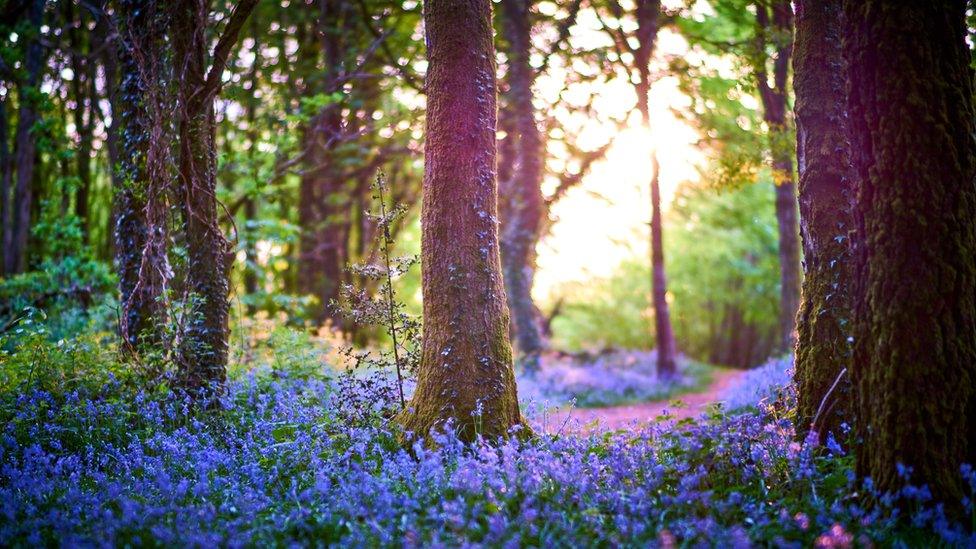
- Published30 May 2020
